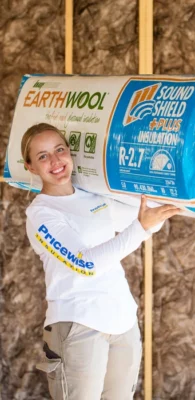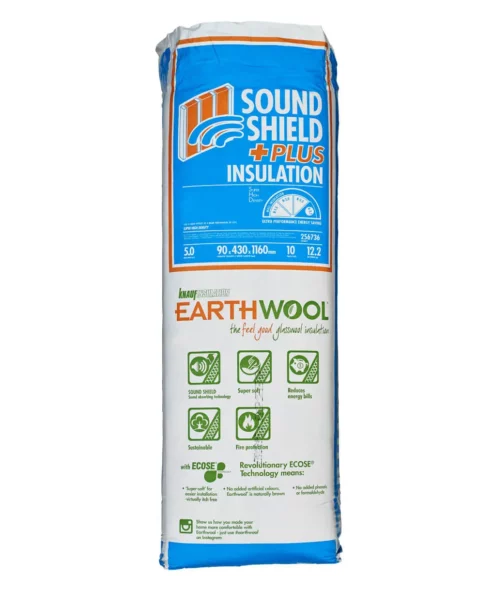Insulation Tips
7-Star Homes and Changes to the NCC 2022
Changes to the 2022 National Construction Code mean that most new houses and apartments in Australia will now need to achieve a minimum energy efficiency of 7-Stars under the Nationwide House Energy Rating Scheme (NatHERS) or Building Sustainability Index (BASIX). The new energy efficiency requirements recently commenced in Victoria, New South Wales, Queensland and ACT. This is the first star rating increase in a decade.
Simple measures such as increasing insulation, planning climate zones in the house and improving window glazing can all help you achieve the new standard.
Read on to find out how energy efficiency standards are changing, what it means for new home builders and how insulation can help you reach a 7-Star home design.
What are the Changes to the NCC 2022?
The changes to the National Construction Code (NCC 2022) require most new residential dwellings in Australia to meet a minimum 7-Star Rating. These ratings are based on the Nationwide House Energy Rating Scheme (NatHERS) or Building Sustainability Index (BASIX), depending on the state or territory where you live.
NatHERS ratings take into account the construction type, building materials, glazing, lighting and insulation to assess the overall annual thermal performance of the building project. The highest rating possible is 10 Stars, which means no artificial heating or cooling is required in the home throughout the year.
BASIX is a sustainability assessment tool for residential buildings in New South Wales. It aims to reduce the environmental impact of new dwellings by setting minimum standards for water and energy efficiency, and thermal performance.
Before the recent changes, the minimum standard of thermal energy efficiency was 5.5 Stars in New South Wales and 6 Stars in Victoria and Queensland. Increasing the minimum standard to 7 Stars will mean new homes are more energy efficient and comfortable to live in.
The changes to the National Construction Code (NCC) were officially agreed to, in a Commonwealth, state and territory Building Ministers’ Meeting on 26th August 2022. The new NCC commenced on 1 May 2023, with a different transition period in each state.
7-Star Homes: Does a One Star Increase Actually Matter?
In Australia, household carbon emissions contribute to at least one-fifth of the nation’s total greenhouse gases. The changes to residential energy efficiency standards will help significantly reduce the nation’s household carbon emissions. Being over a decade since any changes have been made to the standards, the recent changes are long awaited and represent a key step towards near zero carbon housing in the future.
While improving the nation’s energy efficiency, the changes also offer benefits for home builders by improving comfort and reducing energy use. According to the Department of Industry, Science, Energy and Resources, Australian households use 40% of their energy on heating and cooling, about 25% on hot water, 30% on appliances and 8-15% on lighting. Designing for a more energy efficient home can help slash energy bills, leading to long term savings. It will also ensure that your home is more resilient to extreme temperatures in summer and winter.
What the Changes Mean for New Home Builders
Most new home builders across Australia will need to meet the new 7-Star standards. The good news is that simple and cost-effective solutions can make a big difference to your home’s energy efficiency.
Measures suggested by NatHERS to improve energy efficiency include:
- Orienting your home to allow for passive heating and cooling
- Double and triple glazing for the windows
- Designing climate zones inside the home through the use of internal doors
- Adjusting external roof and wall colours
- Improving insulation throughout the home
- Choosing lighting options that don’t interrupt the ceiling insulation
The Importance of Insulation for Energy Efficiency
According to a newsletter released by NatHERS, increasing the R-Value of insulation materials is an important step towards a 7-Star home. Improving insulation in the walls, ceiling, roof, floors, slab edge and under slabs will lead to better energy efficiency and allow residents to save money long term on reduced energy bills.
At Pricewise Insulation, we have been recommending higher R-Values to our customers for many years. We recognise that improved insulation, along with other energy efficiency measures, can have a significant and tangible impact on your home’s comfort and energy use.
In light of the NCC 2022 changes, we expect to see:
- Higher minimum R-values for walls including R2.5, R2.7 for walls.
- R3.0 and R4.0s being specified for walls in homes with 140mm studs.
- Increased requirements for internal wall insulation, particularly in unconditioned spaces such as laundries and bathrooms.
- Higher minimum R-values for ceilings including R6.0 and R7.0 insulation.
- Increased requirements for underslab insulation and slab edge insulation.
- Potential requirements for midfloor insulation in some double storey homes.
If you’re a new home builder, our team of insulation experts are ready to support you through these changes to achieve the new energy efficiency standards while sticking to your budget. Feel free to give our team a call on 1300 729 639 or email sales@pricewise.com.au.
Using Insulation to Achieve a 7-Star Home
Here are some ways insulation can help you improve the energy efficiency and thermal performance of your home:
- Install higher R-Values in the walls, ceilings and underfloor.
Many homes across Australia will require R2.5 or R2.7 wall insulation (such as R2.5 Knauf Earthwool SoundShield or R2.7 Knauf Earthwool SoundShield– which also offers acoustic benefits, due to the density of this product.) We also expect to see requirements for higher R-values in the ceiling, such as R6.0 or R7.0 insulation. - Insulate concrete slabs.
Slab-edge and underslab insulation will help prevent heat loss and gain through the floor. Some of our most popular underslab insulation products include Kingspan Kooltherm K3, Foamex StyroTherm XPS and Slabmate Pro Underslab Insulation. - Insulate garage doors.
Garage door insulation will help reduce heat loss and gain in the garage space, as well as the home if the garage is attached to the house.
As the new changes roll out, Pricewise Insulation will remain committed to providing high quality insulation products at competitive prices. We’ll support you to get the best return on your investment, whether you’re working on a new build or a retrofit project.
For expert advice about achieving energy efficiency standards for your specific project, speak with our team on 1300 729 639.












Pingback: What is Metal Roof Insulation and how to install it with Pricewise Insulation?